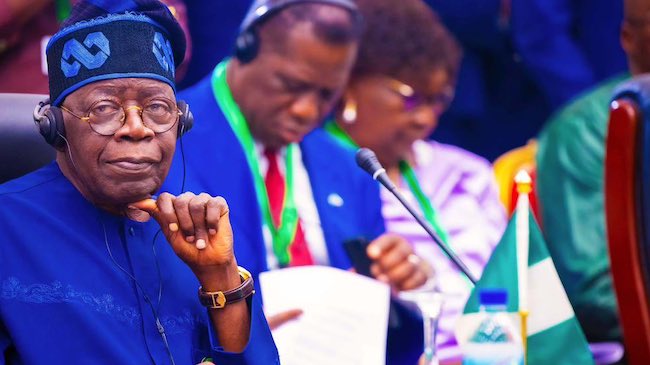President Bola Tinubu’s tenure as Chairman of the Economic Community of West African States (ECOWAS) is drawing to a close. Having served two terms, first elected on July 9, 2023, in Guinea Bissau, and re-elected on July 7, 2024, in Abuja, President Tinubu is set to conclude his leadership at the upcoming ECOWAS summit scheduled to be held at the Presidential Villa in Abuja. His leadership has spanned a period of significant activity and challenges within the West African region, demanding deft diplomatic navigation and decisive action on various fronts. The summit will mark a transition point for the regional body as a new chairman is elected to steer ECOWAS forward in addressing the multifaceted issues confronting the region.
The imminent change in leadership was subtly acknowledged by Nigeria’s Minister of Foreign Affairs, Ambassador Yusuf Tuggar, during the concluding session of the 94th Ordinary Meeting of the ECOWAS Council of Ministers. His remarks, while expressing gratitude for the cooperation received during his tenure as Chair of the Council, hinted at the forthcoming election of a new Chair of Authority at the upcoming summit. This transition marks the culmination of Nigeria’s period at the helm of the regional organization and signals the beginning of a new chapter in ECOWAS’ leadership.
Ambassador Tuggar’s address highlighted the collaborative spirit that characterized his interaction with regional counterparts during his two-year chairmanship. He emphasized the importance of maintaining this collaborative approach, urging continued support for the incoming leadership. This appeal underscores the need for continuity and cohesion within ECOWAS, especially in light of the complex political and economic landscape of the region. A smooth transition and sustained cooperation among member states are vital for effectively addressing the challenges and pursuing the collective goals of the organization.
The conclusion of President Tinubu’s tenure as ECOWAS Chairman marks the end of a period where Nigeria played a pivotal role in shaping the organization’s agenda and responses to regional developments. His leadership coincided with a period of significant political transitions, economic fluctuations, and security concerns within West Africa, requiring skillful negotiation and coordinated action among member states. The upcoming summit will not only elect a new chairman but also provide an opportunity to reflect on the achievements and challenges of the past two years and chart a course for ECOWAS’ future engagement in the region.
The election of a new chairman will usher in a fresh perspective and leadership style, potentially influencing the direction and priorities of ECOWAS in the coming years. The incoming chairman will inherit a complex set of challenges, including political instability, economic disparities, security threats, and the ongoing impacts of climate change. Addressing these issues will demand strong leadership, effective diplomacy, and a commitment to regional cooperation and integration. The transition of leadership offers an opportunity for renewed focus and invigorated efforts towards achieving the organization’s goals of peace, stability, and prosperity within West Africa.
As ECOWAS prepares for this leadership transition, the focus remains on fostering regional cooperation, addressing common challenges, and advancing the integration agenda. The organization’s ability to effectively navigate the complex political and economic landscape of West Africa will depend on the continued commitment and collaboration of its member states. The incoming chairman will play a crucial role in shaping this trajectory, leveraging the collective strengths and resources of the region to address pressing issues and promote sustainable development. The summit serves as a pivotal moment for ECOWAS, marking not just a change in leadership but an opportunity to reaffirm its commitment to regional integration and collective action in addressing the shared challenges facing West Africa.


